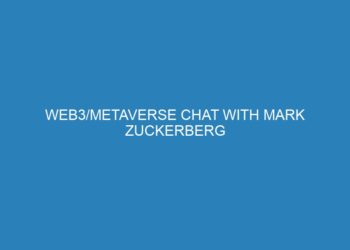Tech
Emperia Raises $10M for its VR Infrastructure Platform That Allows Brands and Retailers to Make the Metaverse Shoppable
Convenience has been the backbone of e-commerce and the pandemic only served as a reinforcement of this tenet. It’s been...
Read moreAnything World Raises $7.5M to Power 3D Experiences Across the Web by Shortening the Time for Development with Machine Learning
With the metaverse growing in popularity, there is a growing need for 3D content that’s powering immersive experiences. However, creating...
Read moreBundlr Network Raises $5.2M for its Decentrazlized Platform That Makes Data Storage on Web3 Seamless
Arweave is a permanent hard drive built on the blockchain that can serve as a permaweb archive. Anything you want...
Read moreWhy the Potential of Big Data is Yet to be Realized in a Tech Market Ripe for Innovation
In the high stakes game of evolving into an unpredictable and new industry like the metaverse, data will be seen...
Read more10 Predictions for the Tech Industry in 2022
Chris Cunningham of C2 Ventures offers some predictions for what 2022 will bring to tech, covering NFTs, managing change, tech...
Read moreWeb3/Metaverse Chat with Mark Zuckerberg
From their purchase of Instagram and WhatsApp in 2012 and 2014 respectively, Facebook has always demonstrated a real understanding of...
Read moreThe Impact of AI-Enabled Smart Cities
"All kinds of automation are great, BUT a city is about satisfying the quality of life of its residents before...
Read moreCord Raises $17.5M for its Platform that Makes Any SaaS Application Collaborative With Just a Single Line of Code
The first instance of multiplayer mode for non-entertainment use can be traced all the way back to 1968 when Douglas...
Read moreCRANQ Raises £1M for its Low-Code Development Platform That Makes it Easy to Understand Code Through Visualization
Despite most code being built on logic and syntax, the perception of someone else’s code is usually very subjective. Differences...
Read moreElectric Gamebox Raises Another $11M for its Social In-Person Immersive Gaming Experiences
As the world emerges from the shadows of lockdowns of the last 16 months, consumers, starved for entertainment options out...
Read more





